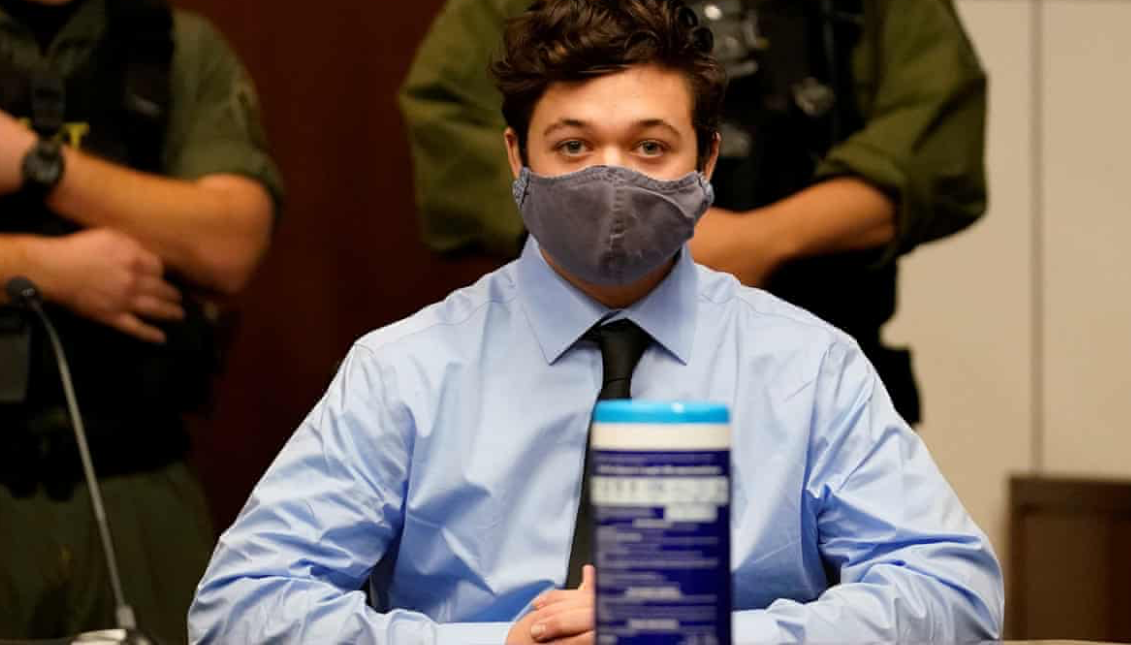
Kenosha shooter Kyle Rittenhouse got out of jail on white privilege, and now has to go back
The 18-year-old is now wanted after failing to disclose a change in address since his release on bail.
Kyle Rittenhouse, the teenager accused of killing two people and injuring a third during the Jacob Blake protests in August, is under further scrutiny by Wisconsin prosecutors for violating his bail agreement.
Rittenhouse did not disclose his address after his release from jail, and his legal team stated that his location was kept secret due to claims of death threats against him.
To recap...
— Charlotte Clymer (@cmclymer) February 4, 2021
1. The authorities can't find Kyle Rittenhouse.
2. His lawyers intentionally wrote the wrong address on his forms.
3. They say they were advised to do so by a high-ranking official in the Kenosha Police Department.
It's like nesting eggs of white bullshit.
The teenager’s case proceedings are attracting a lot of attention lately, due in part to the massive efforts from right-wing circles to provide him with money to set up a defense team.
A group on the Christian crowdfunding website Give Send Go, amassed nearly $500,000 for his legal defense.
"Kyle Rittenhouse just defended himself from a brutal attack by multiple members of the far-leftist group ANTIFA – the experience was undoubtedly a brutal one, as he was forced to take two lives to defend his own," reads the description of the Give Send Go fundraiser page.
Rittenhouse faces allegations in Kenosha, Wisconsin for the deaths of Anthony Huber and Joseph Rosenbuam, and the wounding of Gaige Grosskreutz.
His attorneys maintain that he acted out of self-defense.
Shortly after the shootings on Aug. 25, Rittenhouse returned to his home in Illinois, but was arrested the next day.
In late October, he was handed over to the jurisdiction of authorities in Wisconsin, and within a week, his bond was set at $2 million.
A month later, Lin Wood, chairman and CEO of #FightBack, posted his bail and the teenager was released. In a tweet, Wood explained that the CEO of My Pillow Inc., Mike Lindell and several others contributed to the funds needed for Rittenhouse to be released.
On Dec. 3, Rittenhouse attended a preliminary hearing via video conference with his attorney, Mark Richards. Richards insisted that prosecutors were presenting a “one-sided, stilted view” of the night’s events.
The court determined that he would stand trial, and during his virtual arraignment on Jan. 5, he pleaded not guilty to all charges, including two felony counts of homicide, one of attempted homicide, and more.
If Kyle Rittenhouse were Black, they wouldn’t be looking to arrest him for violating the conditions of his release——he would’ve never been released to begin with.
— Bishop Talbert Swan (@TalbertSwan) February 4, 2021
As a matter of fact, he would’ve been killed by police at the scene.
Less than two hours after the arraignment, the now-18 year old was seen with his mother at a Wisconsin bar, flashing a “white power” hand symbol and being served beer by the bartender, as confirmed by surveillance video.
RELATED CONTENT
In Wisconsin, it’s legal for a person under 21 to drink alcohol in the presence of a parent, but in his home state of Illinois, underage drinking is illegal.
Prosecutors are now requesting a warrant for his arrest due to questions over his current address.
They have also requested that he be prohibited from publicly displaying “symbols and gestures that are associated with violent white supremacist groups” and posessing or consuming alcohol, or being in any establishment that serves it.
As of Wednesday, Feb. 3, prosecutors are petitioning for an arrest warrant, for “violating the conditions of his bond by failing to update his address in writing with the Court within 48 hours of moving.”
They’re also pushing for a bond increase of $200,000.
To say that this ongoing saga of the alleged murderer and white supramcist, Kyle Rittenhouse, is an example of white privilege in the justice system, would be an understatement.
Kalief Browder, a Black teenager from the Bronx was arrested for allegedly stealing a backpack in 2010. He was the same age as Rittenhouse when he was arrested, but Browder was sentenced to three years in Rikers Island without a trial, spending much of his time either being beaten by inmates and guards, or locked in solitary confinement.
Browder didn’t have the option to casually have a beer with his mom after being accused of a much less serious crime. In fact, upon his release, the trauma he faced boiled up so high within him, that he took his own life.
The stark contrast between these two cases once again highlights the existence of what many argue to be “two different justice systems.”











LEAVE A COMMENT: